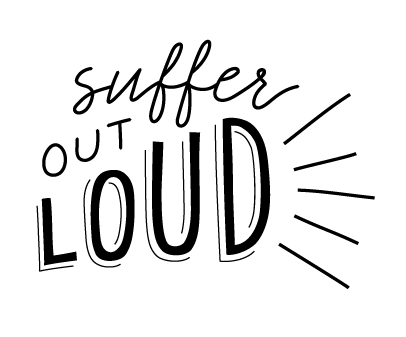Looking Out for Your Mental Health During the Holidays
By Chase Templet
There’s a contradiction at the heart of the holiday season when it comes to mental health. Despite December’s short days, the whole world feels drenched in light and alive with togetherness and cheer. There’s an emphasis on generosity that is woefully absent for the rest of the year. There’s a sense of togetherness, there’s ritual, there’s decorating, there’s gift-giving. But the fact of the matter is that the holidays often present a rupture in routine, so your mental health might need some extra attention.
There are a multitude of reasons why the holiday season can be particularly rough on those who struggle with mental health. We’re in the thick of the season when Seasonal affective disorder is at its absolute height. The frigid weather often binds us to the indoors. The commercial nature of the holidays can add extra financial strain, leaving us feeling class anxiety that might be less severe in other parts of the year. And all of the cheery songs and feel-good movies can leave us feeling isolated.
While claims that suicide rates around the holidays are higher are generally unsubstantiated (in fact, a Medicalxpress article reports that suicide rates are often lower than in other parts of the year), the National Alliance on Mental Illness reports that 64% of people who struggle with mental health report that their conditions worsen in the holiday season. Let’s talk about a few practical, actionable ways that you can look out for your mental health this time of year:
1. Go easy on yourself: One of the reasons that the holiday season can take such a toll on mental health is that it feels like there’s so much to do in such a limited amount of time. Between all of the shopping, cooking, events planning, and logistics, be sure to carve out some time for yourself. If you have a therapist, try not to miss out on your appointments— therapy can be crucial (and extra beneficial) this time of year. As far as social situations go, it might help you feel at ease to have an exit plan for the holiday party that might spark your anxiety or the family gathering that starts to feel like a bit too much.
2. If you can, talk openly about your mental health: There’s some serious bravery inherent in saying outright, “I’m struggling. This time of year is really hard on me.” Whether you’re talking to a professional or someone close to you, talking about what you’re going through and putting it out in the open can help make things more manageable. Don’t be afraid to ask those close to you for help on specific tasks that would help you feel more at ease. Often times, the people in your inner circle might want help but not know exactly how to do so.
3. Don’t overextend yourself: It might take a little bit of mental reframing, but saying “no” or politely declining invitations can be an act of love (if not to others, it’s certainly self-love). Especially if your inclination is to put others’ needs before your own, being transparent about your capabilities and needs is an incredibly important, and the holidays are a perfect time to fine-tune that skill.
4. Be active in practicing gratitude: One of the secrets about gratitude is that it takes effort. And since the holiday season, at its core, is about generosity and giving back, it might help you to be actively exercise gratitude in your own life. If you’re a list-maker, take a few minutes and catalog the things that you’re particularly grateful for this holiday season. Maybe it’s making it through the day. Maybe it’s the people in your life that love you and care about you. Maybe it’s the way that Winter light streams through windows when the sun sets early.
5. Don’t miss the small things: Remember when we were kids and it seemed like the pre-holiday season just stretched out for eons while we waited for Christmas morning? Now, it seems like the holidays are here and gone so quickly. Don’t forget to slow down for a few minutes and appreciate how quiet the world feels when it’s covered in snow, the moment when the lights click on at night, and how you actually get to listen to those one or two Christmas songs that you could actually stand to listen to all year round.
6. Don’t put self-care on the back-burner: There is no one-size-fits-all routine when it comes to self-care, so be mindful of the activities that you engage in that contribute value and meaning to your life. Talk to some friends, revisit one of your favorite books, cook a new recipe (or a familiar favorite), go for a Winter walk, do a quick guided meditation. Anything that recharges your battery and makes you feel more complacent and whole.
7. Understand that there is no replacement for professional help: We love self-care and view it as absolutely vital to a mental-health forward routine; however, no amount of feel-good movies, hot chocolate, and holiday cheer is a substitute for professional help. If you’re really struggling, do yourself (and us) a favor and familiarize yourself with your resources. The best possible gift that you can give to yourself and those who care about you is taking care of yourself, investing time and effort into your mental health, and pressing forward day by day.
From all of us at Suffer Out Loud, we wish you a very heartfelt Happy Holidays. Look out for yourself and others. Never be afraid to ask for help. We wish you all the very, very best!
